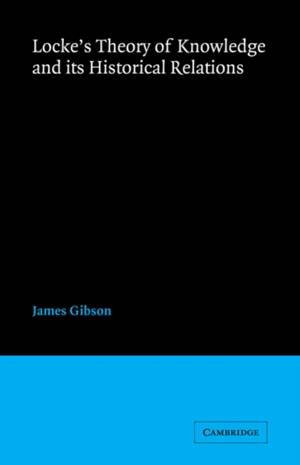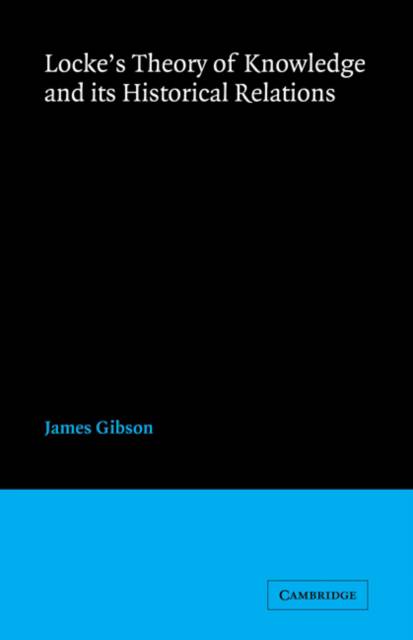
Bedankt voor het vertrouwen het afgelopen jaar! Om jou te bedanken bieden we GRATIS verzending (in België) aan op alles gedurende de hele maand januari.
- Afhalen na 1 uur in een winkel met voorraad
- In januari gratis thuislevering in België
- Ruim aanbod met 7 miljoen producten
Bedankt voor het vertrouwen het afgelopen jaar! Om jou te bedanken bieden we GRATIS verzending (in België) aan op alles gedurende de hele maand januari.
- Afhalen na 1 uur in een winkel met voorraad
- In januari gratis thuislevering in België
- Ruim aanbod met 7 miljoen producten
Zoeken
€ 72,45
+ 144 punten
Omschrijving
John Locke is probably one of the highest-regarded English philosophers, and the first of the British empiricists. His ideas on the mind and consciousness have continued to resonate throughout philosophy and philosophical thought ever since An Essay Concerning Human Understanding first appeared in 1690. James Gibson's Locke's Theory of Knowledge and its Historical Relations was first published in 1917, and saw its fourth reprinting in 1968. Here, it is made available for the first time in paperback. This hugely detailed work is an invaluable collation of Locke's theories, exploring his thoughts on the problems of knowledge, the formation of ideas, causality and the self. Furthermore, Gibson also provides an in-depth historical evaluation of the effects of these theories on contemporary philosophy as a whole, and on thinkers such as Descartes, Kant and Leibniz more specifically. As such, this book is a valuable reference work for any student of philosophy.
Specificaties
Betrokkenen
- Auteur(s):
- Uitgeverij:
Inhoud
- Aantal bladzijden:
- 354
- Taal:
- Engels
Eigenschappen
- Productcode (EAN):
- 9780521158398
- Verschijningsdatum:
- 17/02/2011
- Uitvoering:
- Paperback
- Formaat:
- Trade paperback (VS)
- Afmetingen:
- 140 mm x 216 mm
- Gewicht:
- 449 g

Alleen bij Standaard Boekhandel
+ 144 punten op je klantenkaart van Standaard Boekhandel
Beoordelingen
We publiceren alleen reviews die voldoen aan de voorwaarden voor reviews. Bekijk onze voorwaarden voor reviews.









